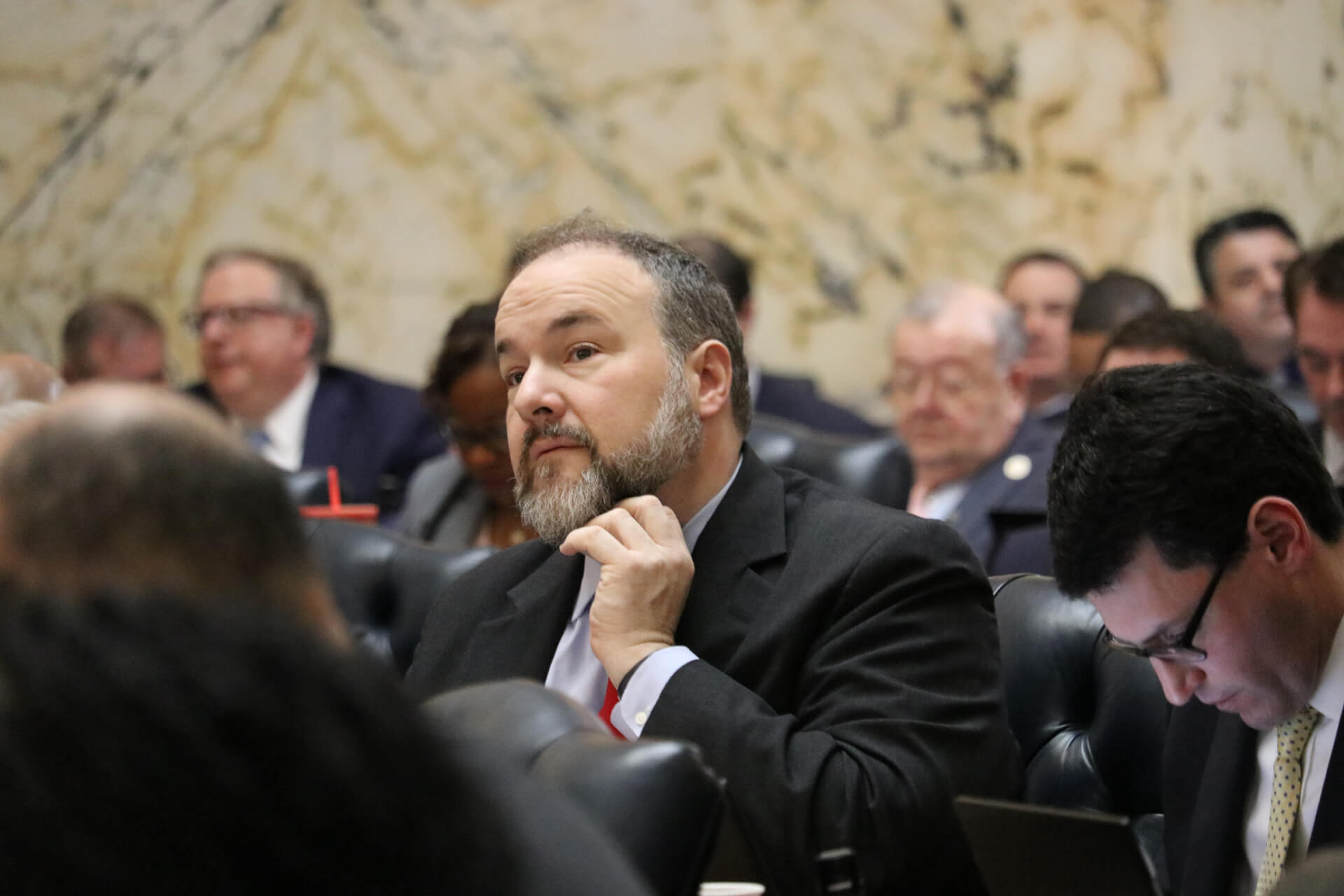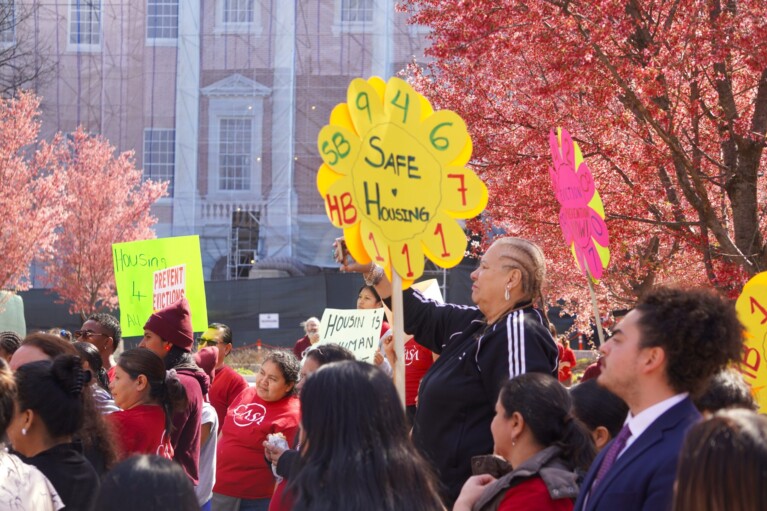House Judiciary Chair Clippinger sponsoring bill to change concealed carry law after SCOTUS decision

As a Senate committee listened to hours of testimony on gun control bills Tuesday, the chair of the House Judiciary Committee was filing legislation limiting who would be eligible to carry concealed guns in the future.
In response to last June’s U.S. Supreme Court decision that struck down a law on carrying concealed guns in public, Del. Luke H. Clippinger (D-Baltimore City) is proposing changes to Maryland law to set out objective standards for so-called “concealed carry” prohibitions
“There’s no question that the jurisprudence across the country is still kind of in flux, but we’re putting a flag in the ground here and saying, this is where we want to begin,” Clippinger said.
The Supreme Court ruled last year that a person no longer needed to demonstrate a need in order to obtain a license to carry a concealed gun in public, saying it violates the Second Amendment. The decision in the case of New York State Rifle and Pistol Association v. Bruen — known colloquially as “Bruen” — affected gun laws in Maryland, among several states, including New York, where the law was challenged.
“We had a subjective standard that no longer works, so we’re going to put in these objective standards,” said Clippinger, a prosecutor in Anne Arundel County. “The idea here is that we’re seeking to build the objective requirements to say, okay, we want to make sure these people definitely are not … having the opportunity to wear or carry a firearm in the state of Maryland.”
Bills heard Tuesday afternoon and into the evening in the Senate Judicial Proceedings Committee — including legislation that would prohibit carrying concealed weapons in so-called “sensitive areas” — drew hundreds of anti-gun advocates and Second Amendment rights proponents alike.
Clippinger’s 17-page bill, which is expected to be formally introduced Wednesday, was the result of conversations with House Speaker Adrienne A. Jones (D-Baltimore County), Judiciary Committee members and advocates of gun prohibitions, he said.
The legislation as drafted would prohibit possession of a regulated firearm by a person:
- who is on supervised probation after being convicted of a crime punishable by imprisonment of 1 year or more;
- who is convicted of driving under the influence of alcohol or drugs.
- who has violated a protective order or is currently under an Extreme Risk Protective Order, a so-called “red flag” order;
- who suffers from a “mental disorder” as defined by state law or has a history of violent behavior;
- who has been involuntarily admitted for more than 30 consecutive days to a facility for treatment of a mental disorder.
The legislation would not change the gun storage law that imposes a $1,000 fine on anyone who leaves a gun unsecured and either knows or should have known that a child could get access to the weapon.
However, for a first offense, Clippinger has proposed adding to the penalty a prohibition from possessing or from wearing or carrying a firearm for 5 years.
“If the gun is used to kill or seriously bodily injure someone, the first time, you’re banned from life. If it’s a subsequent offender, somebody who commits this crime twice, you’re banned for life,” he said.
The bill also would change the language for people eligible to be issued a concealed carry permit by the Secretary of State Police from an “adult” to a person who is “at least 21 years old.”
He also proposed doubling the fee for a wear-and-carry permit from $75 to $150. The bill also would increase the renewal fee from $50 to $100.
“It hasn’t been increased since [Gov.] William Donald Schaefer in 1992,” Clippinger said.
The bill also would expand the classroom instruction required for a permit to include a review of federal gun laws and the state’s self-defense laws, including justifiable use of force and the proportional use of force and de-escalation techniques.
The State Police would also be required to put in writing the reasons any permit is denied. State Police would also keep information and provide data as to the number of licenses issued, the counties where they are issued, and details about permit holders, including their age, gender and race.
Clippinger realizes the bill will change during the legislative process.
“I certainly look forward to working with the chair of JPR and having further conversations about it as we go forward,” he said, referring to Sen. William C. Smith Jr. (D-Montgomery), chairman of the Judicial Proceedings Committee.




 Creative Commons Attribution
Creative Commons Attribution